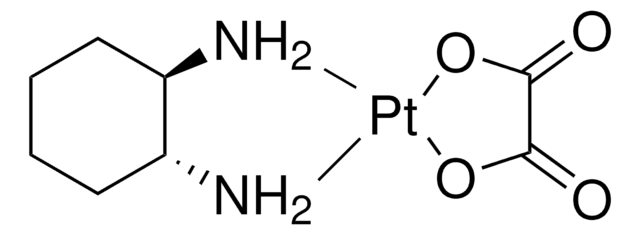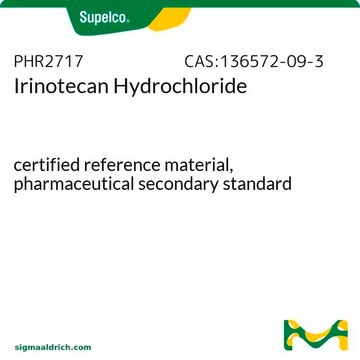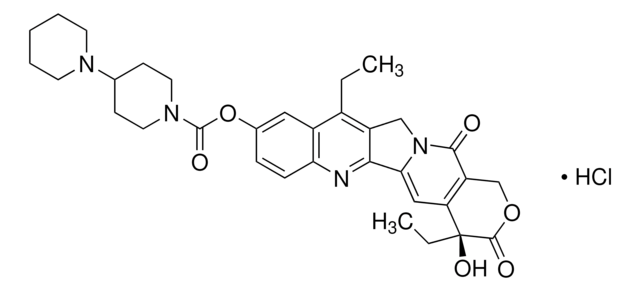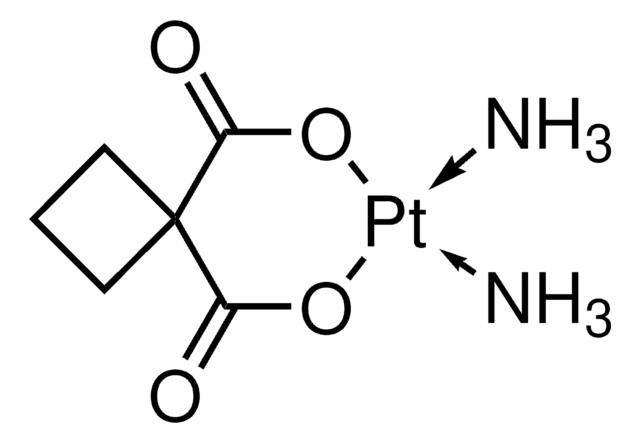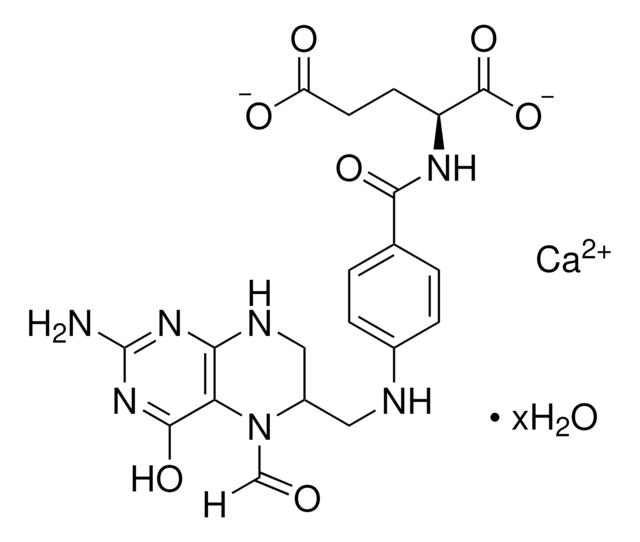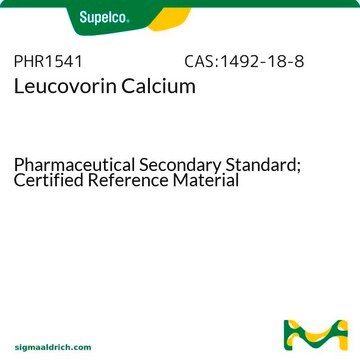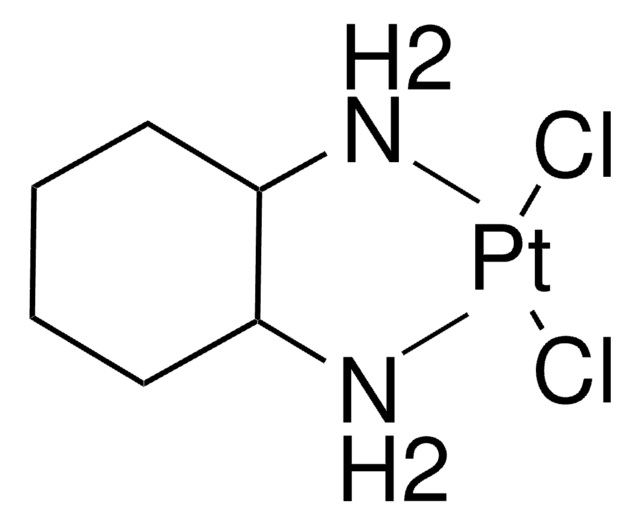Y0000271
Oxaliplatin
European Pharmacopoeia (EP) Reference Standard
Synonym(s):
[SP-4-2-(1R-trans)]-(1,2-Cyclohexanediamine-N,N′)[ethanedioata(2--)-O,O’]platinum
About This Item
Recommended Products
grade
pharmaceutical primary standard
API family
oxaliplatin
manufacturer/tradename
EDQM
application(s)
pharmaceutical (small molecule)
format
neat
storage temp.
2-8°C
SMILES string
O=C1O[Pt]OC1=O.N[C@@H]2CCCC[C@H]2N
InChI
1S/C6H14N2.C2H2O4.Pt/c7-5-3-1-2-4-6(5)8;3-1(4)2(5)6;/h5-6H,1-4,7-8H2;(H,3,4)(H,5,6);/q;;+2/p-2/t5-,6-;;/m1../s1
InChI key
ZROHGHOFXNOHSO-BNTLRKBRSA-L
Looking for similar products? Visit Product Comparison Guide
Related Categories
General description
Application
Packaging
Other Notes
related product
signalword
Danger
Hazard Classifications
Carc. 2 - Eye Dam. 1 - Lact. - Muta. 2 - Repr. 1B - Resp. Sens. 1B - Skin Sens. 1 - STOT RE 1
Storage Class
6.1C - Combustible acute toxic Cat.3 / toxic compounds or compounds which causing chronic effects
wgk_germany
WGK 3
flash_point_f
Not applicable
flash_point_c
Not applicable
Choose from one of the most recent versions:
Certificates of Analysis (COA)
It looks like we've run into a problem, but you can still download Certificates of Analysis from our Documents section.
If you need assistance, please contact Customer Support.
Already Own This Product?
Find documentation for the products that you have recently purchased in the Document Library.
Customers Also Viewed
Our team of scientists has experience in all areas of research including Life Science, Material Science, Chemical Synthesis, Chromatography, Analytical and many others.
Contact Technical Service